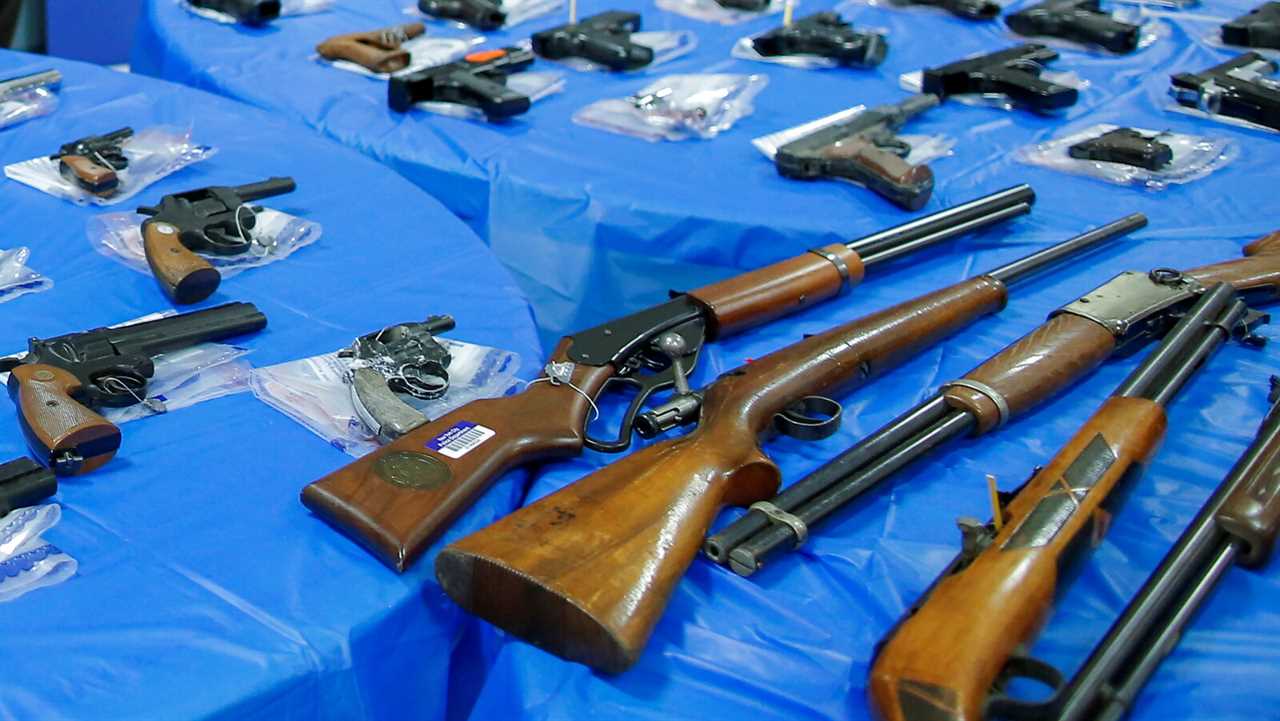
WASHINGTON — A New York law that imposes strict limits on carrying guns outside the home seemed unlikely to survive its encounter with the Supreme Court, based on questioning from the justices on Wednesday.The law requires people seeking a license to carry a handgun in public to show a “proper cause,” and a majority of the justices seemed prepared to say that it imposes an intolerable burden on the rights guaranteed by the Second Amendment. But several justices seemed open to allowing the state to exclude guns from crowded public settings or other sensitive places.The Second Amendment protects a constitutional right just as the First Amendment does, Chief Justice John G. Roberts Jr. said. People seeking to exercise either of those rights, he said, should not have to demonstrate to the government that they have a good reason or special need to do so.“You don’t have to say, when you’re looking for a permit to speak on a street corner or whatever, that, you know, your speech is particularly important,” he said. “So why do you have to show in this case, convince somebody, that you’re entitled to exercise your Second Amendment right?”At the same time, the chief justice was among the justices who asked whether guns could be barred at settings as varied as subways, protests, Yankee Stadium, Times Square on New Year’s Eve and college campuses in New York City.The hearing “provided a road map for New York to follow,” said Adam Winkler, a law professor at the University of California, Los Angeles, and the author of “Gunfight: The Battle Over the Right to Bear Arms in America.”“The justices appeared convinced that restrictions on guns in sensitive places were constitutionally permissible, with Times Square and the subway as potential illustrations,” he said. “Perhaps we will see New York loosen its permitting requirements but strengthening the restrictions on sensitive places to make it very difficult for carry in New York City.”Paul D. Clement, a lawyer for the plaintiffs in the case, including two men who were denied licenses to carry handguns at all times, gave cautious answers to questions about restrictions on guns in sensitive places, saying those issues were not part of the dispute before the justices and should be resolved in future cases.In general, though, and without defining what counts as “sensitive,” he said that “New York is entitled to have laws that say that you can’t have weapons in sensitive places.”The main point, Mr. Clement said, was that “carrying a firearm outside the home is a fundamental constitutional right,” one allowed with few restrictions in 43 states. Those states, he said, included major cities like Phoenix, Houston and Chicago.Justice Elena Kagan responded that “most people think that Chicago is, like, the world’s worst city with respect to gun violence.”Justice Brett M. Kavanaugh said the court should limit its ruling to what he called “the permitting regime.”“We don’t have to answer all the sensitive places questions in this case, some of which will be challenging no doubt,” he said.Barbara D. Underwood, New York’s solicitor general, told the court that limits on guns in sensitive places would not be a complete solution.“You end up having a very big difficulty in specifying what all the places are that have the characteristics that should make them sensitive,” she said. “It has an attractive quality to it, but in implementation, I think it would be unsuccessful.”But Ms. Underwood’s defense of New York’s licensing system did not seem to satisfy a majority of the justices.She said that “unrestricted permits are more readily available in less populated areas,” setting off a discussion of where it is most valuable to have a gun for self-defense.“If the purpose of the Second Amendment is to allow people to protect themselves,” Chief Justice Roberts said, “that’s implicated when you’re in a high-crime area. It’s not implicated when you’re out in the woods.”Ms. Underwood said it made sense to allow guns where there is little law enforcement presence. The chief justice asked, “How many muggings take place in the forest?”Justice Samuel A. Alito Jr. asked whether people who work late in Manhattan — “it might be somebody who cleans offices, it might be a doorman at an apartment, it might be a nurse or an orderly, it might be somebody who washes dishes” — would be granted a license if they said they had a dangerous commute through a high-crime area.“They do not get licenses, is that right?” Justice Alito asked.Ms. Underwood said that was generally correct. “The core right to self-defense,” she said, “doesn’t allow for all to be armed for all possible confrontations in all places.”There was much discussion of history, including repeated references to the Statute ofBy: Adam Liptak
Title: Justices’ Questions Suggest New York Gun Control Law Is Unlikely to Survive
Sourced From: www.nytimes.com/2021/11/03/us/politics/supreme-court-guns-second-amendment.html
Published Date: Wed, 03 Nov 2021 23:13:02 +0000
Read More
 UK PoliticsWorld PoliticsVideosPrivacy PolicyTerms And Conditions
UK PoliticsWorld PoliticsVideosPrivacy PolicyTerms And Conditions
